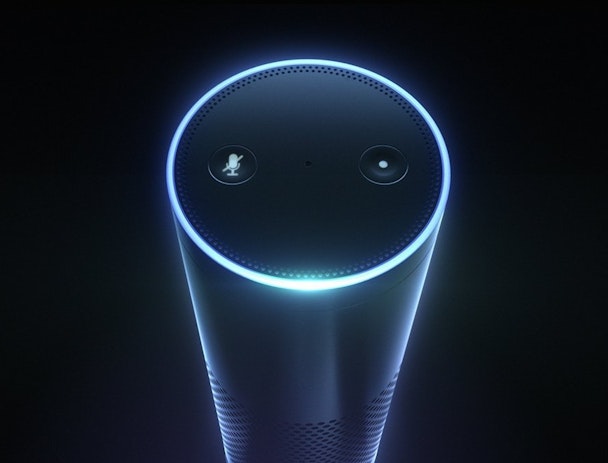Will voice services like Amazon's Alexa really rise as fast as predicted?
Amazon’s Alexa assistant is booming. Around 5m are installed in America alone. And Alexa has around 7,000 skills.

This is a great strategic move for taking on Google and Facebook, which makes Amazon the centre of a new digital ecosystem. An argument made brilliantly by Ben Thompson last week.
Alongside Alexa, Baidu and Google have rapidly improving voice recognition.
So people are using voice services a lot more than they did. But is there a limit on how big they can get?
Yes.
There are a lot of situations when people don’t want to use voice controls.
People don’t want to talk to computers, when they are in front of other people. This is why live chat on websites works well – it allows people to do personal business while at work.
Consider all the times when people don’t talk on phone, but do use the internet. This is what Mark Zuckerberg was recently referring to when he said he ends up communicating by text more than he expected with his smart home.
Common examples are mealtimes, on public transport, when socialising, in the cinema or watching TV with their family. Instead people prefer to quietly use social media. This is probably why voice calls are declining slightly, despite becoming very cheap.
Ofcom’s latest Communications Market Report has a detailed analysis. It’s notable that older groups are particularly resistant.
Why is this?
We find it hard to listen more than one voice at once. So we struggle to watch TV if our family are all talking to their computers.
So instead we communicate quietly. We leave the room to take a phone call. And we instant message across the room.
That’s why Ofcom found that 26% of internet users have messaged somebody in the same room.
We do this to stop people hearing what we are saying. And to be polite.
Add these together and how much of the day is suitable for voice activated devices?
It’s telling that most Alexa demos involve a man alone.
The ONS Time Use Survey helpfully allows us to add up this time.
If you add up time alone at home it comes to 170 minutes a day, 18% of our waking day. If you assume that voice control will become significant for people who commute alone by car, then it rises to around 27% of the day. That’s all the time we spend on:
- Rest (awake)
- Cooking
- Cleaning
- Washing clothes
- Repairs & gardening
- Reading

The ceiling in practice is quite a lot lower because voice commands can be slow for many tasks. Jakob Nielsen, one of the world’s leading user experience experts, picked out voice commands as one of the most overhyped digital technologies back in 2006:
“In predictions about computing's future, voice interaction is a perennial favorite – it probably even beats 3D, which is the other top contender for most overhyped UI technology. While voice has its place, it's even less suitable than 3D for most everyday interactions because it's a less data-rich channel and it's harder to specify something in words than to choose it on a graphical display.”
So is voice going to grow? Yes.
Will it be really useful in some circumstances? Yes.
Is it going to take over the world? No.
Rob Blackie is director of social at OgilvyOne. He tweets @robblackie_oo
